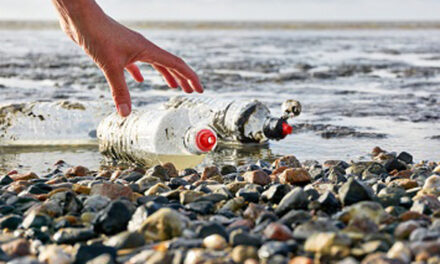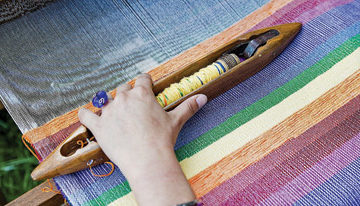Scientists have revealed the surprising results of new research which reveals that washing clothes on a delicate setting is more environmentally damaging as it releases hundreds of thousands of extra microfibres into rivers and oceans. The Newcastle University study reveals that new research by the Ocean Wise Plastics Lab shows that home laundering contributes significantly to microfibre pollution of aquatic environments.
Researchers at Newcastle admit they were surprised to learn that washing clothes on a delicate setting was the worst of all cycles for the environment as it caused hundreds of thousands of extra microfibres to be released into the water system. Although regular washing machine cycles were more vigorous, they used less water than gentler cycles and it was the volume of water used – rather than the spinning action – which caused the most tiny particles of plastic to be shed.
PhD student Max Kelly’s team measured the release of microfibres from polyester clothes from a range of different cycles, temperatures and water volumes. Using a hi-tech camera, they counted 1.4 mn fibres from a delicate wash, 800,000 when a normal cotton wash was used and 600,000 from a cold express programme.
Kelly said: “Counter-intuitively, we discovered that ‘delicate’ cycles release more plastic microfibres into the water, and then the environment, than standard cycles.” Previous research had suggested that the speed at which the drum span, the number of times it changed direction and the length of pauses in the cycle were the most important factors.
“But we have shown here that even at reduced levels of agitation, microfibre release is still greatest with higher water volume to fabric ratios. This is because the high volume of water used in a delicate cycle, which is supposed to protect sensitive clothing from damage, actually ‘plucks’ away more fibres from the material,” he added.
Millions of plastic microfibres are shed every time clothes containing materials such as nylon, polyester and acrylic are washed. They enter the marine environment where they can be ingested by small animals and end up in our food chain. The Ocean Wise Plastics Lab study found the range of microfibre shedding during a single wash ranged widely – from an estimated 9,766 to 4.3 mn microfibres per kg of textile per wash. “I was surprised at the very large range in shedding outcomes during a standard home laundry among the different textile samples tested,” research lead Dr. Peter Ross told.









